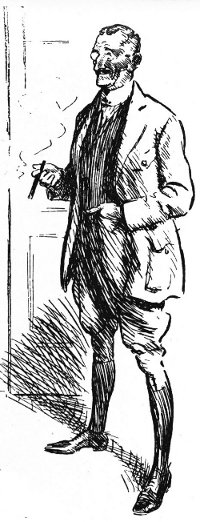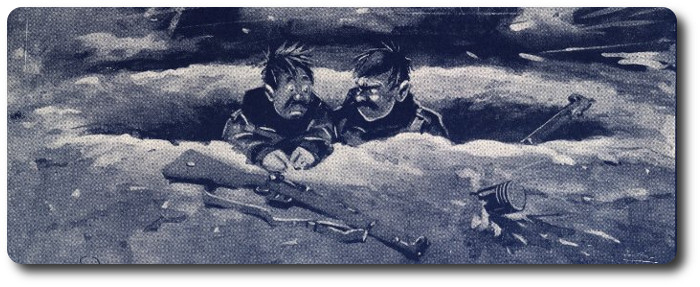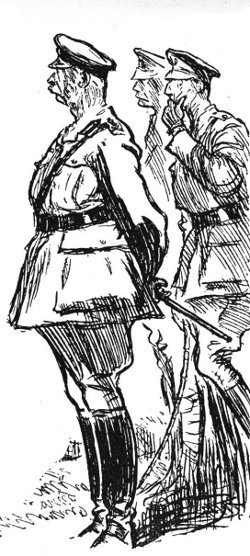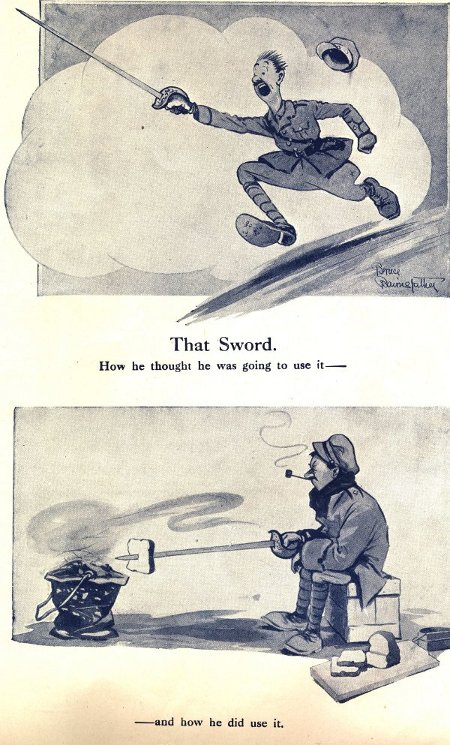Topic: Humour
 Following the First World War, many tried their hands at literary pursuits, from the well-known war poets to others who wrote the stories of their service. Following these better known examples, there were also some who tried to fill in every imaginable niche, penning works of interest for those with a lingering interest in understanding the late war and its soldiers. One of these was John Hay, with his volume "Humour in the Army" (pub. by Hazell, Warson & Viney, Ltd., 1931).
Following the First World War, many tried their hands at literary pursuits, from the well-known war poets to others who wrote the stories of their service. Following these better known examples, there were also some who tried to fill in every imaginable niche, penning works of interest for those with a lingering interest in understanding the late war and its soldiers. One of these was John Hay, with his volume "Humour in the Army" (pub. by Hazell, Warson & Viney, Ltd., 1931).
From "Humour in the Army" we get this advice on identifying officers out of uniform in order to salute them:
The order that a soldier should salute all officers whom he knows to be such, whether in uniform or plain clothes, is one that gives a good deal of trouble to the ordinary soldier. Unfortunately, unless he has a good memory for faces, he is very liable to omit to salute Captain Ironbrace, who has come out in a dirty flannel suit, while on the other hand he may give a seven-horsepower salute to a smartly dressed individual who turns out to be the colonel's batman on leave or the assistant in the regimental barber's shop.
For those who suffer from this difficulty in recognizing people there are a few well-established rules for their guidance:
(1) If you see a monocle in barracks it usually has an officer behind it. Salute.
(2) If the individual approaching you has an "I can do no wrong" air, that's either a junior officer or a sergeant major. In both cases be on the right side and salute.
(3) If you see anything habited in freak clothes, that's usually an officer, Salute.
(4) If, in a gentlemen's outfitter's shop, you you see a very young gentlemen buying crimson braces, magenta socks, and pink shirts, that's probably a young officer. Salute.
(5) If you meet an elderly gentleman who prefaces everything with "Eh, what?" that's probably a senor officer. Salute.
(6) If you discover an individual ramming his unpaid bills into the fire, that's sure to be an officer. Salute.
(7) If you meet a militant-looking young gentleman who speaks of "damned civilians," that's probably a newly commissioned Territorial officer. Salute twice.



 The Door that was Locked
The Door that was Locked